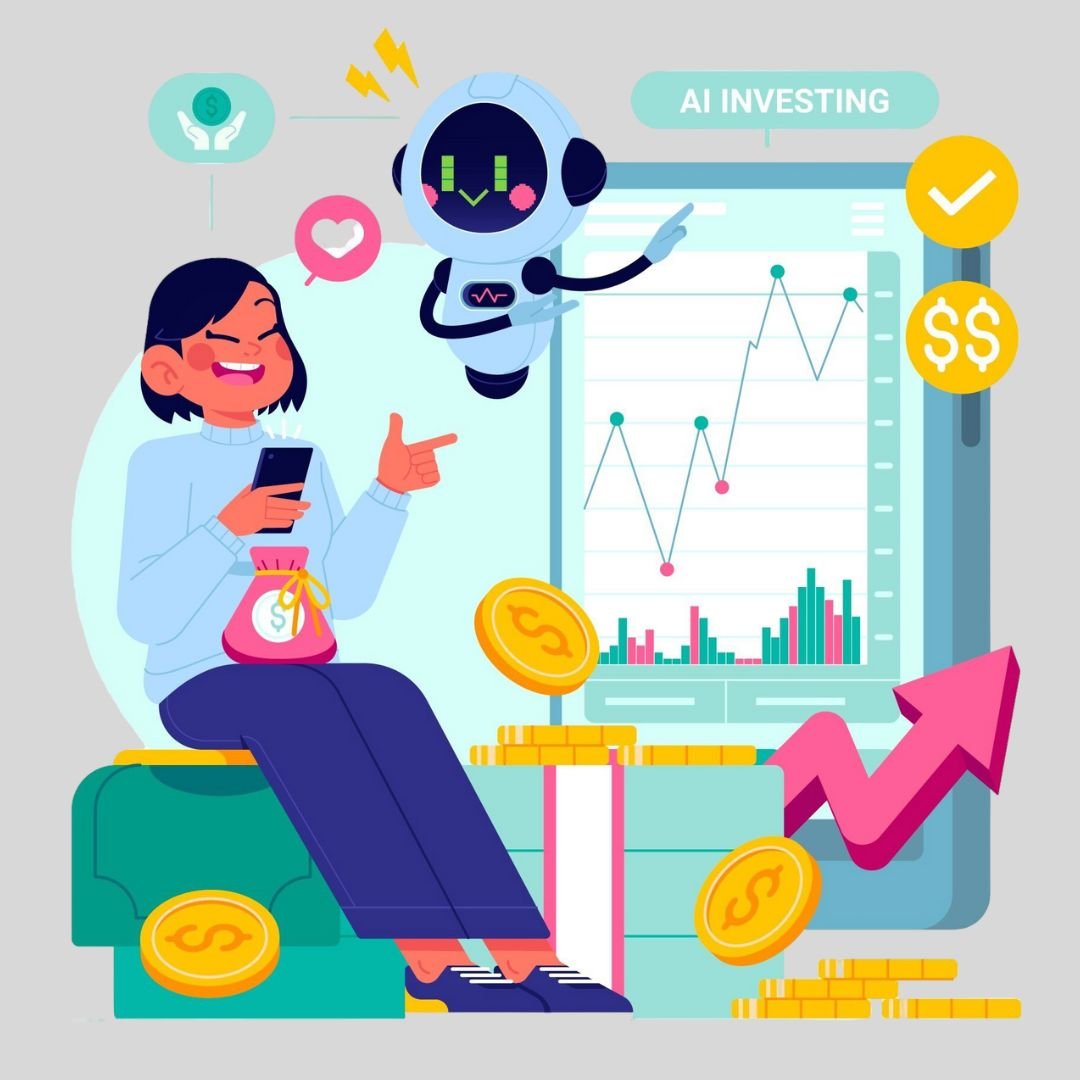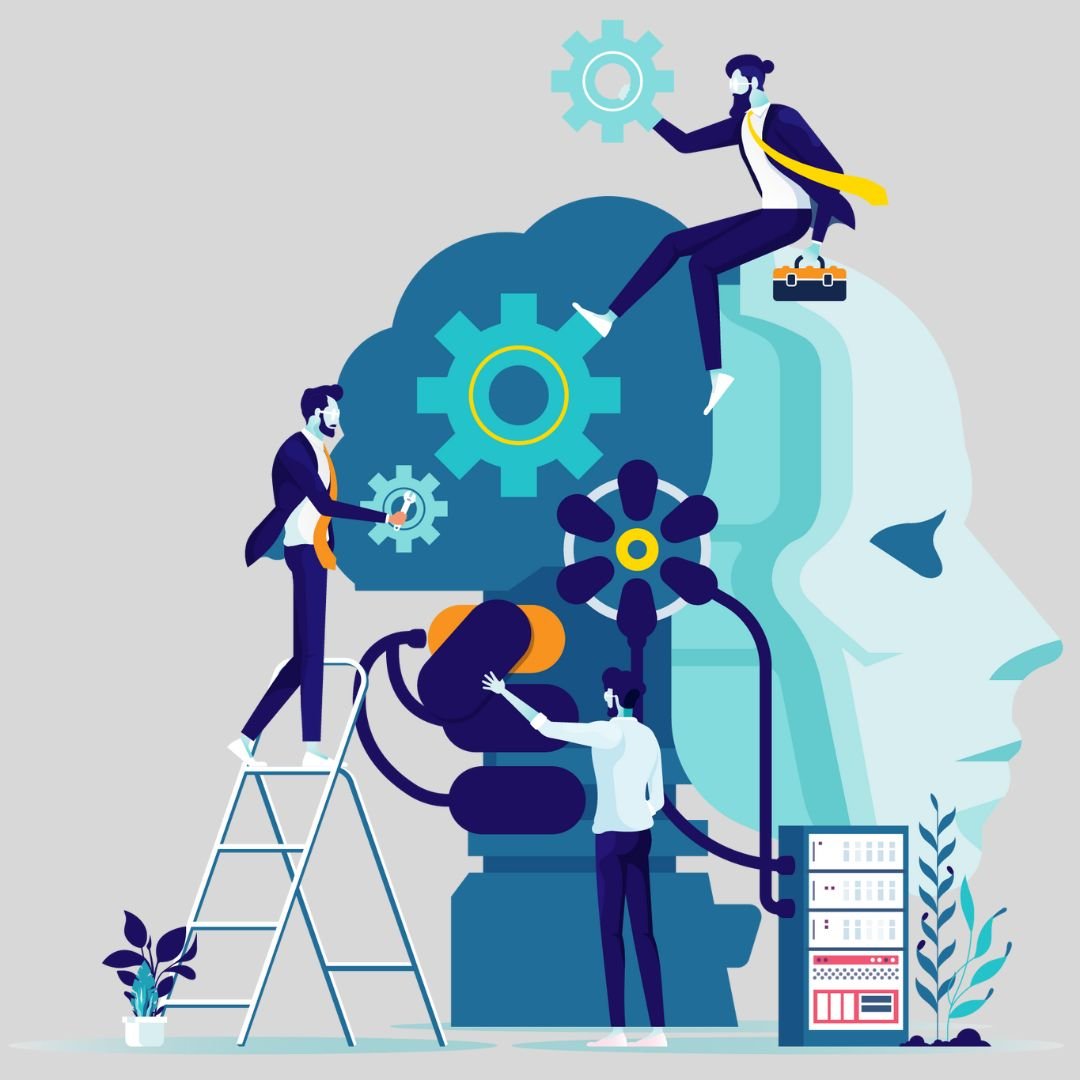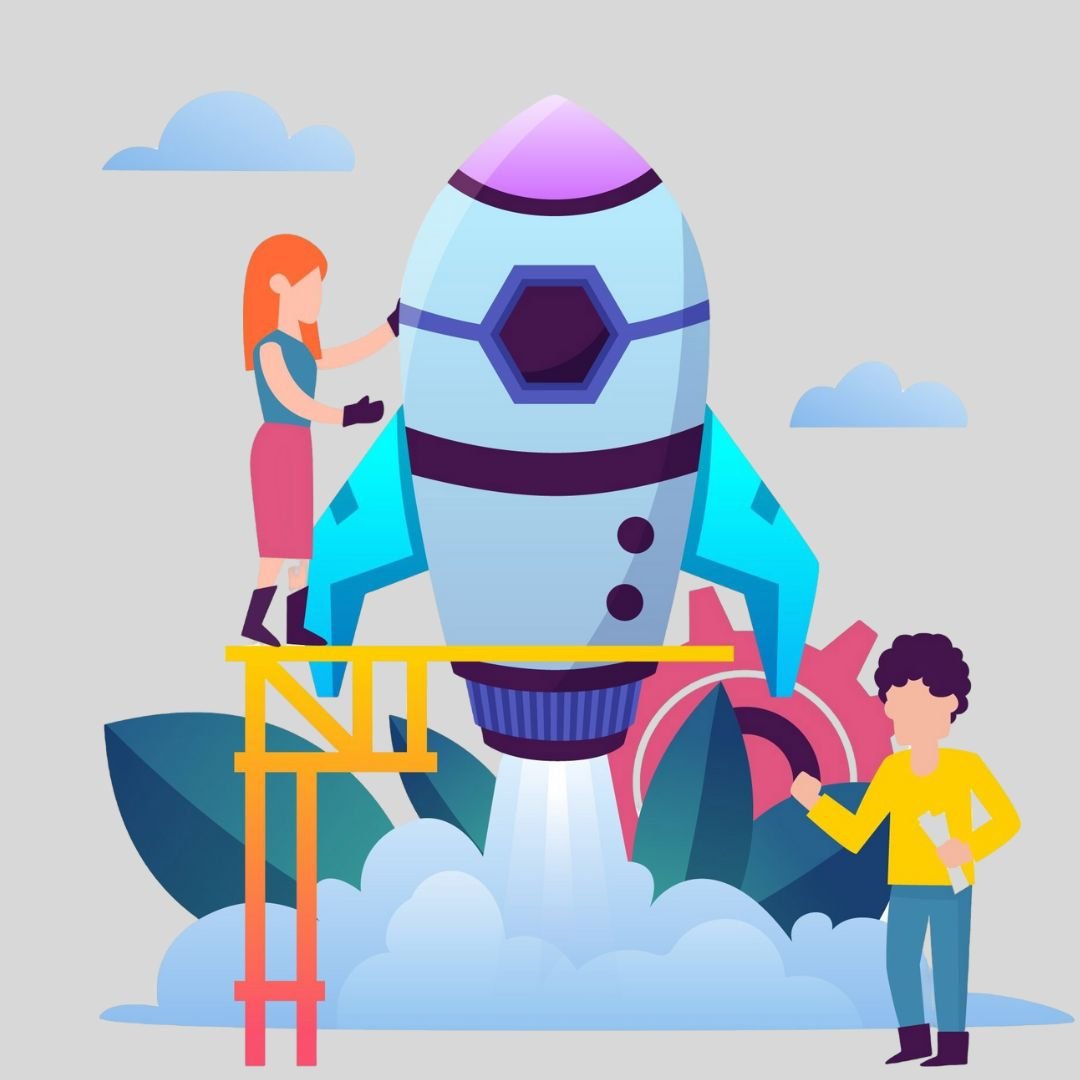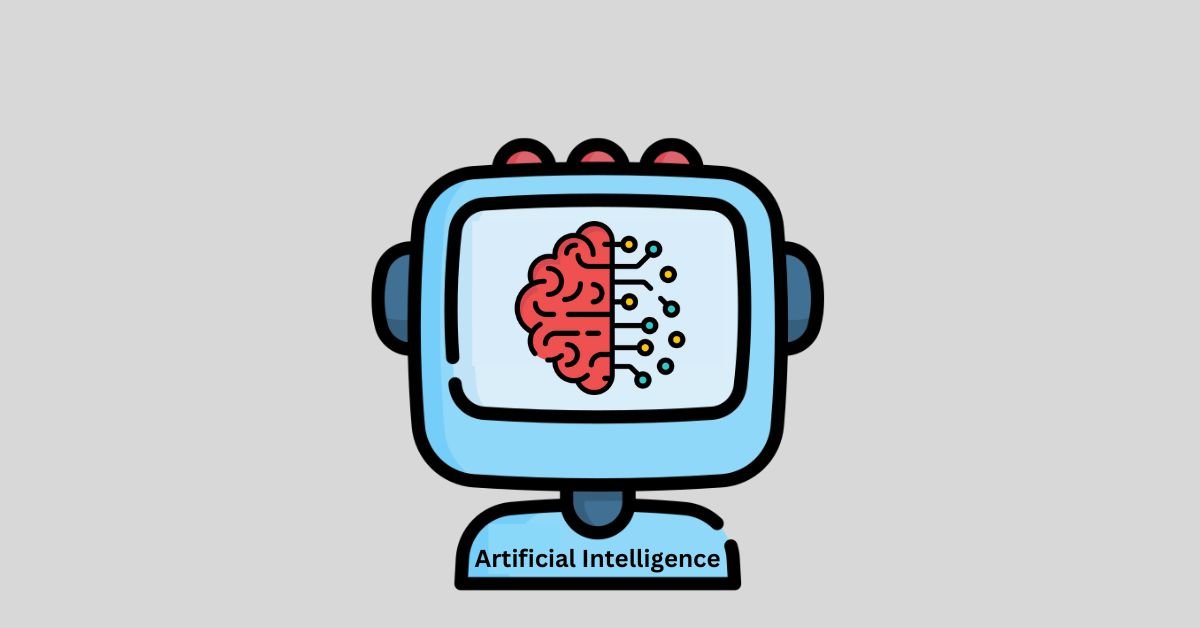Introduction to AI in Digital Marketing
Artificial Intelligence (AI) refers to the ability of machines to perform tasks that typically require human intelligence, such as analyzing data, understanding language, and learning from experience. In digital marketing, AI is used to automate processes, provide insights from vast amounts of data, and enhance personalization for improved user experience. As a result, AI-driven technologies are enabling marketers to craft more relevant content, target audiences more effectively, and optimize campaigns in real-time.
1. AI-Driven Content Creation
A key application of AI in digital marketing is content creation. AI tools like natural language processing (NLP) and machine learning algorithms are capable of producing high-quality written content. These tools can generate blog posts, product descriptions, social media updates, and even video scripts with minimal human input.
AI-powered platforms such as GPT-4 are particularly useful in generating content that resonates with specific target audiences. They analyze trends, preferences, and language patterns to create content that is more likely to engage users. For instance, AI can write personalized email campaigns that speak directly to the recipient’s needs, increasing the likelihood of conversion.
Moreover, AI assists in brainstorming by providing topic suggestions and writing prompts based on data-driven insights. Marketers can use AI to quickly produce SEO-optimized content, improving search engine rankings and driving more organic traffic to websites.

2. Enhanced Personalization with AI
Personalization has become a key aspect of digital marketing, and AI is taking it to the next level. Traditional marketing strategies often rely on broad audience segmentation, which can lead to generic messages that fail to resonate with individuals. AI, however, can analyze user data at an incredibly granular level, identifying unique preferences, behaviors, and needs.
Through machine learning algorithms, AI systems can deliver hyper-personalized content and recommendations. For example, e-commerce platforms like Amazon and Netflix use AI to recommend products or shows based on previous interactions, leading to higher customer engagement and retention. Similarly, AI-driven email marketing campaigns can tailor content to individual users, offering them products or services that align with their past behavior and preferences.
By providing personalized experiences, AI increases customer satisfaction and loyalty, which ultimately leads to higher conversion rates and improved ROI (Return on Investment) for marketing campaigns.
3. Optimizing Digital Advertising Campaigns
AI in digital advertising is transforming how marketers reach their target audience. Programmatic advertising, powered by AI, automates the buying and selling of ad space in real-time, allowing marketers to place highly targeted ads in front of the right people at the right time. This minimizes wasted ad spend and ensures that marketing budgets are used effectively.
AI can also analyze vast amounts of data from multiple sources, including social media platforms, websites, and search engines, to identify patterns and trends. With this information, AI algorithms can predict which ads will perform best and allocate resources accordingly. Tools like Google Ads and Facebook Ads Manager are incorporating AI to optimize campaigns, continuously learning and improving over time.
AI also enables dynamic ad creation, where content and visuals change automatically based on the audience’s preferences or behaviors. This ensures that users are seeing ads that are relevant to them, further improving engagement rates.
4. Improved Customer Experience with AI Chatbots
AI-powered chatbots are becoming increasingly popular in customer service, as they provide quick and efficient responses to customer inquiries. Unlike human representatives, AI chatbots can handle multiple queries simultaneously, offer 24/7 support, and provide instant solutions to common problems. This greatly enhances the customer experience and allows businesses to save on resources while maintaining a high level of service.
Chatbots are used across websites, social media platforms, and messaging apps to assist users with various tasks, such as finding products, booking services, or troubleshooting issues. With AI, these chatbots are becoming more sophisticated, capable of understanding context and providing more relevant responses. For example, AI chatbots can learn from interactions to offer better answers and even escalate issues to human representatives when necessary.
The use of AI chatbots in digital marketing is not just limited to customer service; they are also employed in lead generation, collecting user data, and nurturing prospects through the sales funnel.
5. AI-Enhanced SEO Strategies
Search engine optimization (SEO) is a crucial component of any digital marketing strategy, and AI is playing an increasingly important role in this area. SEO relies on understanding and optimizing for search engine algorithms, which are constantly evolving. AI tools can analyze large datasets to identify which keywords and phrases are most relevant to a particular industry or audience.
AI-powered platforms like Clearscope and MarketMuse help marketers develop SEO-optimized content by suggesting keyword usage, readability improvements, and content structure changes. These tools also predict how well a piece of content will rank on search engines based on current trends, providing valuable insights that help marketers stay ahead of their competition.
Additionally, AI can analyze user behavior on websites to identify patterns that affect search rankings, such as bounce rates, session durations, and click-through rates. With this information, marketers can make data-driven decisions to improve their site’s SEO performance.
6. AI for Social Media Marketing
Social media platforms are a goldmine of user data, and AI is helping marketers tap into this resource more effectively. AI tools can analyze social media posts, comments, and interactions to gain insights into audience sentiment and preferences. This enables marketers to tailor their content and messaging to resonate with their audience on a deeper level.
AI-driven analytics tools also allow marketers to track social media performance in real time, providing insights into which posts are generating the most engagement and which strategies are falling flat. By continuously learning from data, AI can predict the best times to post, the most effective hashtags to use, and the ideal content formats for each platform.
Moreover, AI is enhancing influencer marketing by identifying the best influencers for a brand based on audience demographics, engagement rates, and content relevance. This allows marketers to partner with influencers who are more likely to generate high ROI for their campaigns.

7. Predictive Analytics and AI
Predictive analytics is among the most impactful applications of AI in digital marketing. By examining historical data, AI can forecast future trends, behaviors, and outcomes. This allows marketers to make more informed decisions about their strategies and campaigns.
Predictive analytics can be used to forecast customer behavior, such as when they are most likely to make a purchase or abandon their cart. It can also help marketers anticipate market trends, enabling them to stay ahead of their competition. For example, an AI tool might analyze data from previous holiday seasons to predict which products will be in high demand during an upcoming holiday sale.
By leveraging predictive analytics, marketers can optimize their strategies for maximum impact, ensuring that they are targeting the right audience at the right time with the right message.
8. AI for Email Marketing
Email marketing remains one of the most effective digital marketing strategies, and AI in digital marketing is further enhancing its effectiveness. AI-powered tools can analyze user behavior and preferences to craft highly personalized email campaigns. For instance, AI in digital marketing can determine the optimal time to send an email, the best subject line to use, and the most relevant content for each recipient.
Moreover, AI enables automated email workflows, allowing users to receive personalized emails based on their interactions with a brand. For example, if a user abandons their cart, an AI-powered email campaign can follow up with a discount code to encourage them to complete their purchase.
Additionally, AI in digital marketing can evaluate the performance of email campaigns in real time, offering insights into open rates, click-through rates, and conversion rates. This enables marketers to continually optimize their email strategies for improved results.
9. AI for Voice Search Optimization
With the rise of voice-activated devices like Amazon Alexa and Google Home, voice search is becoming an increasingly important aspect of digital marketing. AI plays a crucial role in optimizing content for voice search by understanding natural language and user intent.
In contrast to traditional text-based searches, voice searches are typically longer and more conversational in nature. AI tools can examine voice search queries to detect patterns and optimize content accordingly. For example, marketers can use AI to identify common voice search phrases and incorporate them into their SEO strategies.
By optimizing for voice search, businesses can improve their visibility in search engine results and reach a broader audience.
10. AI-Powered Analytics and Reporting
One of the biggest challenges for digital marketers is analyzing vast amounts of data to gain actionable insights. AI in digital marketing has introduced powerful analytics tools that make this process faster and more efficient by automating data analysis and providing real-time reports.
With AI in digital marketing, these tools can analyze data from various sources, including websites, social media platforms, and email campaigns, to deliver a comprehensive view of marketing performance. They can also identify trends, opportunities, and areas for improvement, enabling marketers to make data-driven decisions.
Beyond assessing past performance, AI in digital marketing can predict future outcomes, helping marketers optimize their strategies for maximum ROI.
11. AI in Customer Journey Mapping
Understanding the customer journey is essential for developing effective marketing strategies, and AI in digital marketing plays a vital role in this endeavor. AI can analyze data from multiple touchpoints, including website visits, social media interactions, and email opens, to provide a detailed map of the customer journey. This helps marketers pinpoint the most critical stages and identify where users are dropping off, allowing for more targeted interventions.
Utilizing AI in digital marketing for customer journey mapping allows marketers to create more targeted and personalized campaigns that effectively address the specific needs and pain points of their audience at each stage of the journey.
12. AI for Competitive Analysis
AI in digital marketing can also be leveraged for competitive analysis, providing marketers with valuable insights into their competitors’ strategies and performance. By analyzing competitor websites, social media profiles, and advertising campaigns, AI in digital marketing can uncover strengths, weaknesses, and emerging industry trends.
Armed with this information, marketers using AI in digital marketing can fine-tune their strategies to capitalize on opportunities and stay ahead of the competition. Additionally, AI in digital marketing enables tools to monitor competitors’ brand mentions and public sentiment, allowing marketers to evaluate public perception and respond proactively.
13. The Future of AI in Digital Marketing
As AI in digital marketing continues to evolve, its influence is expected to expand even further. Future advancements may bring more sophisticated algorithms that can understand human emotions and preferences, leading to deeper personalization and higher engagement.
Additionally, the integration of AI in digital marketing with other technologies, like virtual reality (VR) and augmented reality (AR), could unlock new opportunities for immersive marketing experiences. For instance, brands could use AI to create personalized VR environments where customers can interact with products virtually, enhancing the user experience.

14. Challenges and Considerations
While the benefits of AI in digital marketing are undeniable, there are also challenges to consider. Implementing AI technologies can require significant investment, and businesses must ensure they have the right infrastructure and expertise to support these tools.
Furthermore, ethical concerns regarding data privacy and security are gaining greater importance. Marketers must be transparent about how they collect and use data, ensuring that they comply with regulations like GDPR and CCPA.
Conclusion
The role of AI in digital marketing is transforming the way businesses engage with their audiences and develop strategies. By leveraging AI-driven tools and technologies, marketers can create better content, enhance personalization, optimize campaigns, and ultimately drive better results. As AI continues to evolve, its potential in digital marketing will only expand, offering businesses new opportunities to connect with their audiences and achieve their goals.
Incorporating AI in digital marketing strategies is no longer optional; it’s essential for staying competitive in a rapidly changing landscape. Embracing AI not only helps marketers work more efficiently but also empowers them to create more meaningful and impactful experiences for their customers. The future of digital marketing has arrived, and it’s driven by AI.
